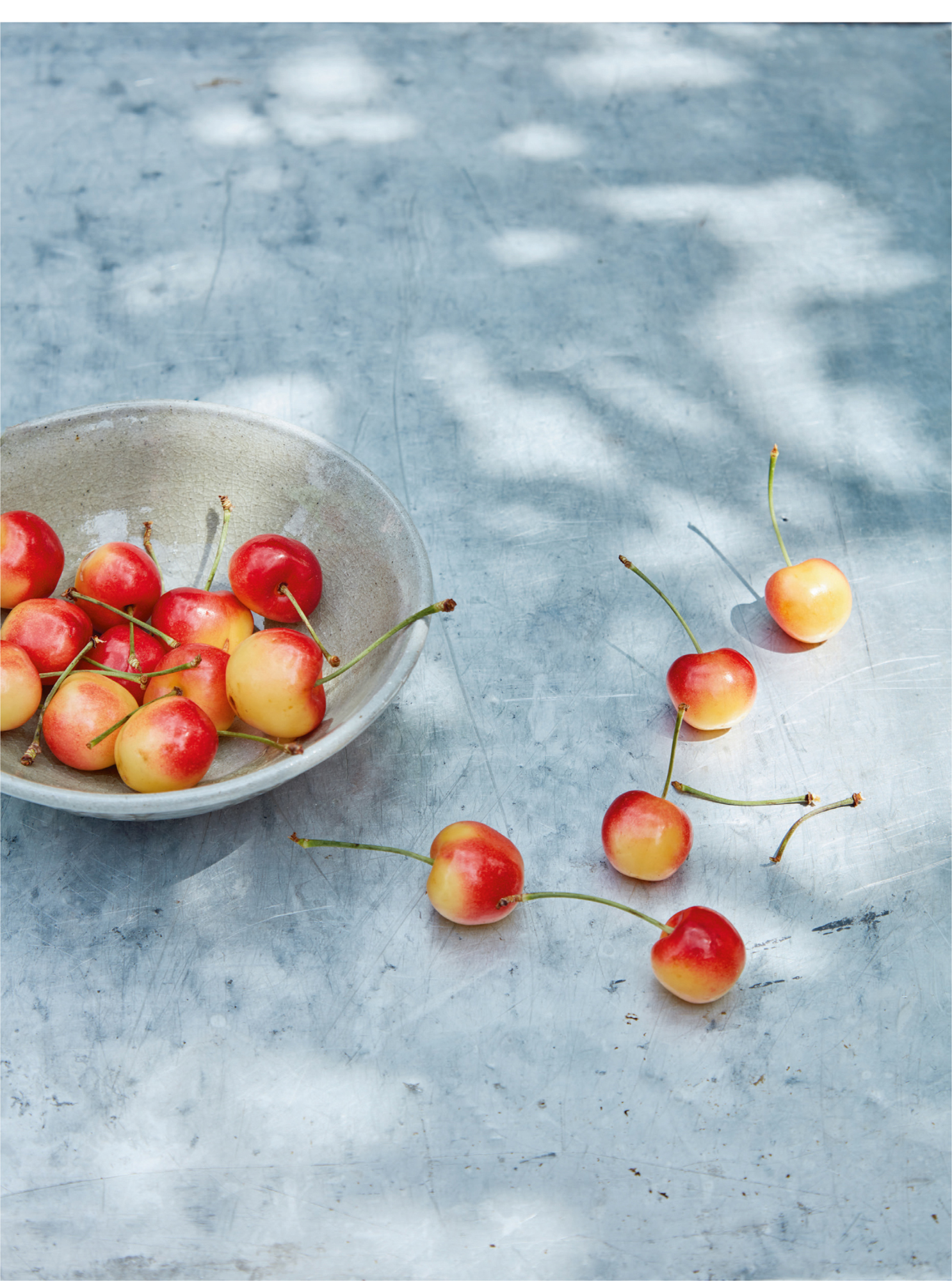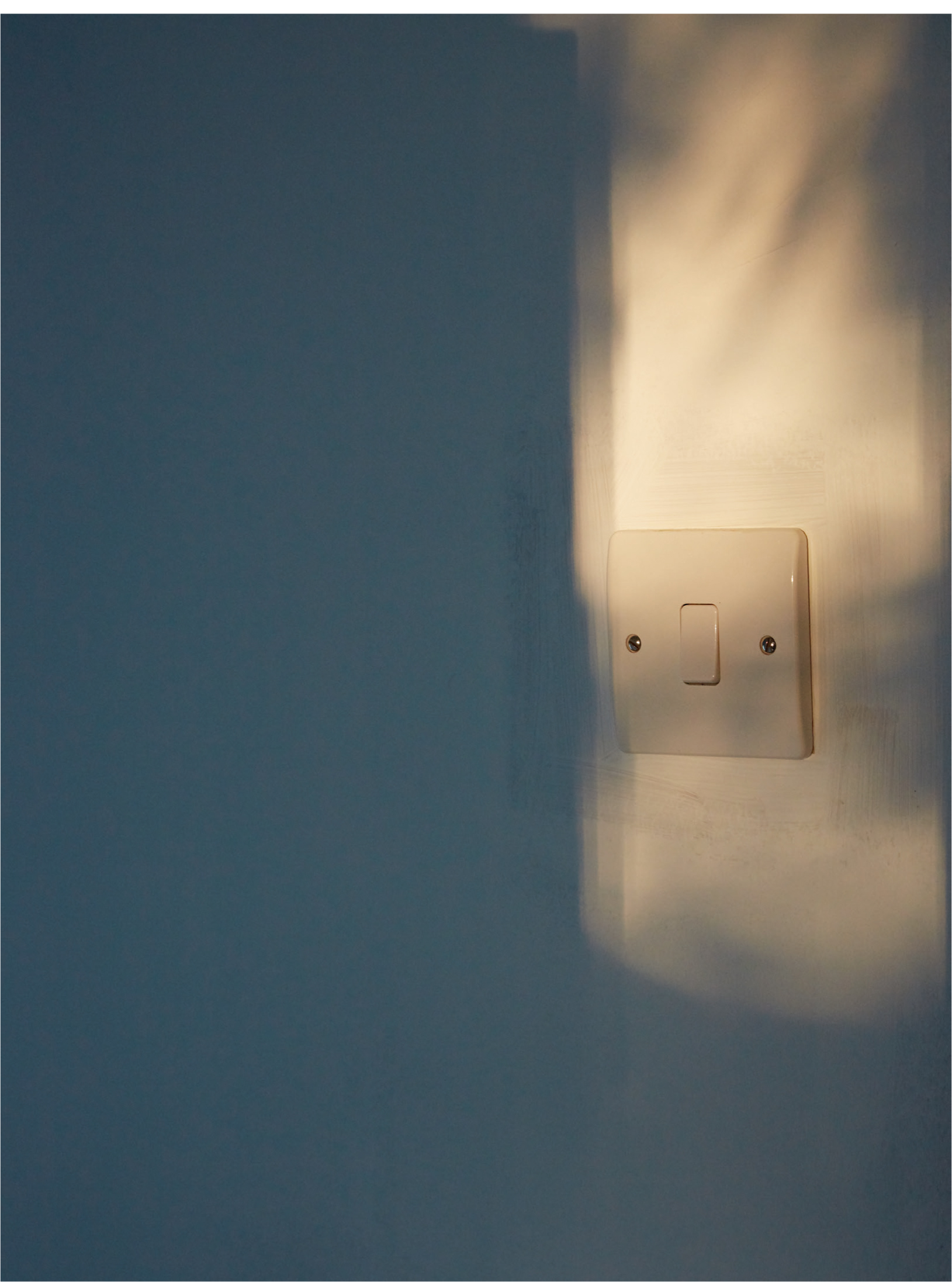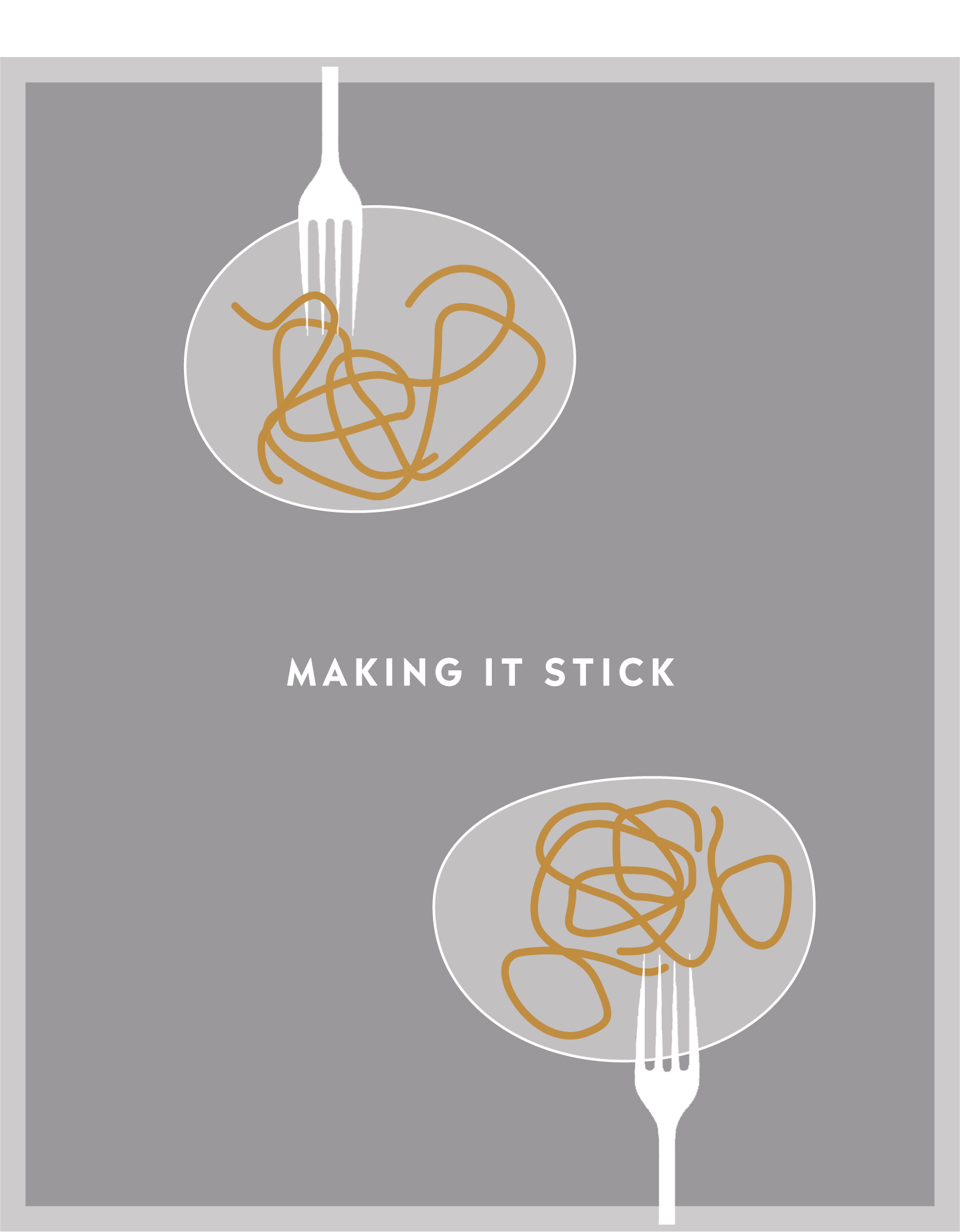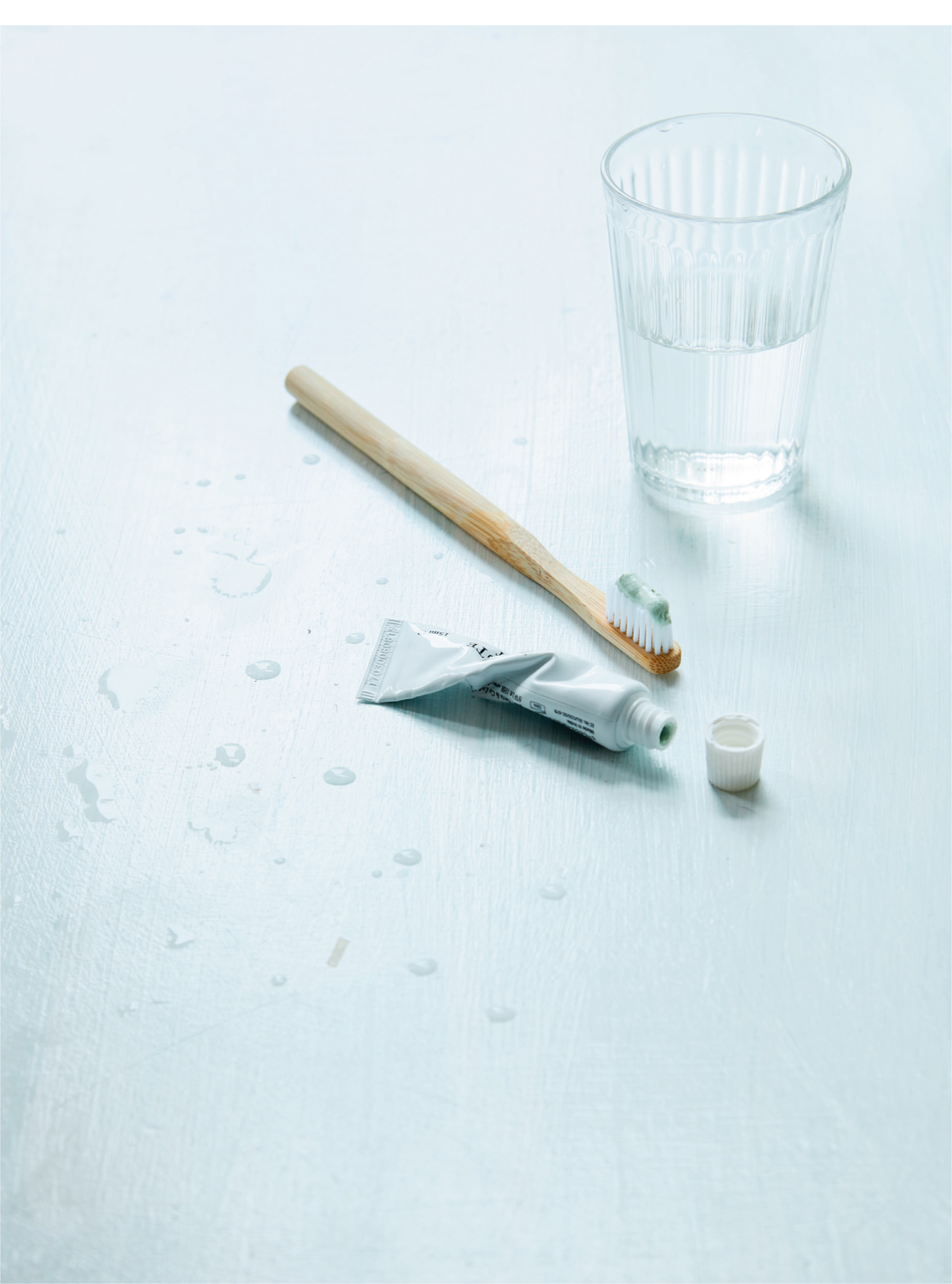Life is brilliant. For most of us, it’s absolutely jam-packed with tiny moments of joy and small victories. Of course, it very often doesn’t feel this way. But even when it seems like we’ve not had the best of days, I guarantee that good things have happened. If you’re not fully conscious of them all, it’s because the brain is a problem solver. We ruminate on the things that have gone wrong because we need to learn from our mistakes. We worry about potential snags that might lie up ahead so we can plan and be prepared for them. But paying so much attention to the negative can give us a tremendously distorted view of how our lives are actually going.
There’s a simple and effective way out of this trap. It involves spending five minutes a day on each of your Feel Better Days working on positive-mindset techniques. This might mean nudging yourself into feeling grateful for the little wins that have happened in an otherwise gruelling day or reframing some of the stressful things that might have occurred so that you see the silver lining. It might mean celebrating yourself and working on firming up your self-esteem.
Positive-thinking practices don’t cost any money, nor do they take up much time. But the benefits are profound. Gratitude practices alone have been shown to improve physical and psychological health, to enhance sleep, and to improve self-esteem and mental resilience.
By making a regular practice of celebration you’ll start to program your brain to look out for all the positives in life, the things that make it worth living. You’ll find yourself noticing these moments more often and feeling grateful, encouraged and more confident. By changing the way you experience your daily life, you’ll soon start to change yourself.



THE GRATITUDE GAME
Answer five simple questions about your day.
This is the game I play around the dinner table each night with my family. Each of us—my wife, myself, and our two children—has to answer the following five questions.
(This game used to have only three questions but over the past two years each of my kids has introduced a new one!)
•What have you done today to make someone else happy?
•What has someone else done today to make you happy?
•What have you learned today?
•What have you done today to make yourself happy?
•How did you feel when you made someone else happy?
This is a simple game that has become part and parcel of our daily family life. It helps us all focus our attention away from the negative towards the positive things that happen in our lives each day. Recently, my daughter said that one of her friends at school had made her happy as she held the door open for her because she was carrying some books. For me, I feel as if I am helping my kids cultivate a really important life skill that will help them immeasurably as they get older and begin to be exposed to many of the stresses in the modern world.
It has the added benefit of connecting us all to each other in a positive and meaningful way, going beyond the usual dreaded “So what did you do at school today?” We end up finding out things about each other that would have been unlikely to have come up in regular conversation.
This game is not just for those with families, of course. It works just as well with friends, partners, or even by yourself.

GRATITUDE FOR LIFE
Write down five things you are grateful for in your life.
I love this health snack because it’s just so simple. I’d like you to spend five minutes trying to write down five things you’re grateful for in your life. It could be anything at all, from the nice weather to the fact that you have a roof over your head, a job, or that you can afford to buy food each day. It could even be a tiny thing, like a particularly good episode of TV you enjoyed last night.
If you’re struggling to think of anything, try using some of these ideas to guide your thoughts.
•I’m grateful that I have enough money to feed myself and my family.
•I’m grateful that I have a raincoat that kept me dry as I walked into town this morning.
•I’m grateful that I have a partner with whom I can share my experiences and worries.
•I’m grateful I have a job.
•I’m grateful for the setbacks in my life that were painful at the time but allowed me to learn and grow.
•I’m grateful to be alive and have a heart that beats thousands of times a day to keep me alive.
You could focus on some of the things you are proudest of. It could be your role as a parent, your degree, the fact that you’ve successfully held down a job for the past few years, or do park runs or Couch to 5K. It could simply be that, despite being tired and exhausted, you still managed to cook up a nourishing meal instead of giving in to temptation and ordering take-out.
Another way to do this exercise might be to write down five things that have given you pleasure over the last twenty-four hours. Perhaps you listened to an awesome podcast on the way to work. Perhaps your daughter or son smiled at you at just the right moment. Perhaps you watched a YouTube video that had you in stitches. Perhaps you gave your friend a lift into work. For every scenario, write down why it made you feel good and take a moment to enjoy revisiting it in your mind. Don’t worry if you don’t come up with five. Stop and think about each one in turn. Then, the next day, pick up where you left off.
Some of my patients enjoy doing the same exercise every day, but others love a bit of variety. It can be fun to change things up and write about different categories on each Feel Better Day. You can choose any category you like, but here are some options to get you started.
1.Relationships
2.Finances
3.Experiences
4.Health
5.Future events
With a bit of practice, you will soon be able to locate five things that happened to you in the last twenty-four hours that you feel grateful for. This is the most effective way of doing this health snack, as it’s a regular reminder that, no matter how hard life can become, there are usually good things happening to us, even if they’re not immediately apparent.
Your brain’s always responding to the information it’s being fed. If we start regularly feeding our brains positive information, our minds will start to become more positive.
| Listen to more about the benefits of gratitude in my conversations with Matt Haig and Rupy Aujla on my Feel Better, Live More podcast at drchatterjee.com/61 and drchatterjee.com/rupyaujla |


THREE TIPS FOR PRACTICING GRATITUDE
BE SPECIFIC.
The more specific you are about the things you feel grateful for, the more effective this health snack will be. For example, if you want to celebrate the fact that the barista at Starbucks made you an excellent coffee and treated you well, really drill down into the details of what was so lovely about it. What was it about the coffee they did so well? Was it the taste? How did it taste? Did they remember your name? Did they offer you a genuine smile? How did that make you feel?
FOCUS ON PEOPLE RATHER THAN THINGS.
For example, I am grateful to have my friend Philip in my life because he supports me and wants the best for me. This will generate more positive feelings than being grateful for a new pair of shoes.
CONNECT WITH YOUR EMOTIONS.
When you’re writing your list, try to really experience the positive feelings the exercise is pulling out of you.

DAILY PLEASURE
Do something you love for just five minutes each day.
Life becomes even better when we do things that make us feel good. Better still, research has shown that regular doses of pleasure make us more resilient to stress. The problem is, we’re often so focused on all the little problems we’re facing in the immediate future that opportunities for pleasurable experiences just pass us by.
This health snack is super simple. All you have to do is spend five minutes a day intentionally doing something you love. This could be anything at all—listening to a favorite song with your eyes closed, reading a treasured book, going for a walk, or watching a funny video online. I want you to give a daily dose of pleasure the same priority you would give to eating a healthy meal.

CELEBRATE YOURSELF
Write down the qualities you love about yourself.
How is your relationship with yourself? It’s not even a question we typically ask ourselves. We spend our days looking outwards, thinking outwards, and caring outwards. We don’t often peer back inwards and reflect on how we’re doing with us.
It’s extremely important that our relationship with our own selves is healthy. By “healthy,” I don’t mean that we’re always completely uncritical of ourselves and refuse to accept any criticism from others. This isn’t about arrogance or selfobsession. It’s about being our own best friend. True friends aren’t the ones who tell you everything you do is perfect. They’re the ones who gently and caringly let you know when you’ve made mistakes. They genuinely want you to feel safe, happy, and successful. This is the relationship I’d like you to practice with yourself.
This health snack will help you to be the best friend you’ve always dreamed of. If your first thought when considering it is “I haven’t got time for all that!” then you’re exactly the kind of person who needs to celebrate yourself the most.
Write down as many things you love about yourself as you can think of in five minutes. This isn’t as easy as it sounds, especially if you’re the kind of person who’s often quite harsh on yourself. If you find it hard at first, think about what others would say if they were asked to list your positive qualities.
| Listen to a beautiful conversation with the hypnotherapist Chloe Brotheridge about the importance of celebrating yourself on my Feel Better, Live More podcast at drchatterjee.com/bravenewgirl |
CELEBRATE OTHERS
Write a letter to someone who has done something good for you.
Another way to enjoy all the benefits of gratitude is to write a letter to someone you love or value. Think about someone who has done something good for you. It could be a small favor or a compliment paid to you in the last week or so, or it could be something bigger from your more distant past. It could be your parent, a friend, a work colleague, a parent from the school run, or the clerk at your local train station. Take up to five minutes to address this person in a letter. Let them know what they’ve done and how it made you feel. Tell them how their behavior affected your life or changed the way you think.
For example, you could write a letter to the ticket officer at your local station and thank them for giving you the information that enabled you to purchase a cheaper fare. Write down the joy you felt and how much you appreciated it.
When you’ve written the letter, simply think about this memory, focusing on your feelings of gratitude. You can amplify the benefit of this health snack massively by actually giving this person the letter or writing it into an email. Alternatively, if you don’t feel able to do this, you could write your gratitude letters and store them in a box or a folder. This could act as a powerful gratitude battery you could use to charge yourself up with when you’re feeling lonely or down.
The benefits to your health come from the actual writing of the letter. Whether you give someone the letter or simply write it is up to you.

REFRAME THE MOMENT
Practice being kind to yourself by reframing something from your day.
This health snack involves thinking about something you did during the day (or the previous day, if you’re doing this in the morning) that you might have done differently, reframing it, and letting go of self-blame.
When we regret our actions, it’s easy to snap into a blameful state of mind, cursing ourselves and calling ourselves out. I’d like you to calmly and compassionately ask why you behaved the way you did. Did you fall out with a work colleague because you stayed up late last night binge-watching a box set and consequently woke up feeling tired and irritable? Did you shout at your kids because you’d just opened an unwelcome bill? Did you have a fight with your partner because you’d just looked in the mirror and didn’t like your appearance?
This process of reflecting back and reviewing what happened each day is incredibly useful. It gives you the opportunity to take a breath and be kind to yourself. Psychologists believe that this exercise is much more powerful when you write it down. There’s something about the process of physically noting your train of thought that makes it real and powerful. It just doesn’t seem to happen in the same way if it stays inside our heads.
I’d like you to sit in front of a fresh piece of paper or a journal for five minutes and work through the following questions.
•Which moment from the last twenty-four hours would you like to reframe? Write down a simple description of what happened, as if you were an observer.
•What’s the worst interpretation of your behavior? What would your harshest critic tell you your behavior shows about who you are?
List five reasons why this viewpoint is wrong.
When you’ve finished, write: “I forgive myself for . . . ,” adding in the moment you’ve been working through. Once you’ve written it down, allow yourself a few moments to really focus on the statement, experiencing all the emotions it brings.


REFRAME THE DAY
Write down three things that went well for you today.
This is an incredibly powerful exercise that research has shown to increase people’s happiness immediately, with the positive effects in some people still present six months later.
Write down three things that went well for you today. Here are some suggestions.
•Did someone make you a cup of tea at work?
•Did someone let you turn out of a side street on to a main road?
•Did someone offer you their seat on the bus?
•Did someone tell you that your backpack was open and that things may fall out?
•Did your partner tidy the house before you came home?
After each act write a sentence saying why the positive event happened and what it tells you about the world. It could be that your colleague made you a hot drink because they care about you, or the driver let you turn out of the side street because there are good, caring people everywhere.
If this practice feels tricky at first, don’t worry. That’s perfectly normal. The more you do it, the better at it you’ll become. The simple process of pausing and reflecting on these positive events can be incredibly beneficial, changing how you see the world around you.
REFRAME THE FUTURE
The idea that we might “reframe the future” sounds impossible. But it really is true.
It involves saying an affirmation. As discussed in The Forgiveness Affirmation on page 231, affirmations are short, powerful statements that feed your brain positive information. So, think: what kind of person do you wish to be today? Would you like to be compassionate and patient? Calm and happy? Patient and forgiving? Choose your affirmation and write it down. It must be in the present tense. For example, “I am calm and happy” or “I am patient and forgiving.”
Say your affirmation out loud, or under your breath. Some people prefer to do this with their eyes closed. Repeat it continuously for as long as you can, but for at least one minute. I appreciate that you may find it challenging to do this for a whole 5 minutes. That is completely fine. Even 1–2 minutes of this can be incredibly helpful. If you choose to keep your eyes closed and repeat it under your breath, it can feel like a calming, meditative practice.


This is the last time I’m going to mention this, I promise! As with all the Feel Better in 5 health snacks, it really is important to attach them to an existing part of your daily routine. I do my own gratitude practice at the dinner table with my family, which means I don’t need to find any extra time in my day to do it. It’s now become a habit, and I miss it on the occasions when I can’t join in because I’m away. Within weeks of starting to do it, it became an automatic behavior that just happens when we’re all at the dinner table, without us thinking about it.
As you have already learned, another important strategy to help make new behaviors stick is to set up your environment in such a way that makes the behavior you wish to engage in as easy as possible. If you have chosen one of the writing-based health snacks, consider keeping your notebook or journal beside your bed. This also acts as a visual trigger, so that every night when you get to your bed, you are being prompted to do your health snack.
The more of these little tips you can introduce around each of your health snacks, the more likely it is that you will be doing them not just once, but day after day, week after week, year after year.
